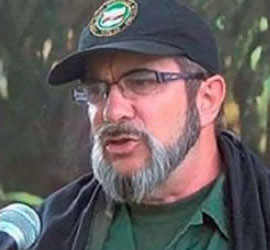BOGOTA (Reuters) – It remains undecided whether leaders of Colombia’s Marxist FARC guerrillas sentenced for human rights violations under the country’s new justice accord with the rebels would be allowed to someday enter politics, the head of Bogota’s negotiating team said yesterday.

The government and the Revolutionary Armed Forces of Colombia (FARC) rebel group agreed last week to create special courts to try former guerrillas and military, and vowed to sign a peace deal by March to end five decades of war.
Many of the FARC’s leaders, including its chief Rodrigo Londoño, also known as Timochenko, face charges for involvement in kidnappings, massacres and disappearances, as well as large-scale trafficking of illegal drugs.
“It is an issue which has not been resolved,” said lead negotiator Humberto de la Calle referring to the possibility of sentenced ex-guerrilla leaders’ political participation during a press conference in Bogota.
According to last week’s agreement, those convicted of crimes against humanity or war crimes will not be allowed to take advantage of reduced sentences offered to lower-level offenders.
Guerrilla fighters and members of the armed forces who confess other crimes will be detained for five to eight years in austere conditions, according to the agreement signed by Colombia President Juan Manuel Santos and Londoño before the two shared an historic handshake.
Prisoners may participate in demining work and other efforts to aid the country’s post-conflict transition. Those who refuse to confess but are convicted could face jail terms of up to 20 years.
Under normal circumstances, anyone sentenced to prison in Colombia is automatically disqualified from seeking political office and from voting.
The political participation of the convicted ex-FARC leadership is one of several key issues, including whether rebels could be extradited to face charges abroad, which have still not been decided at the negotiating table.
“It is an important point in the process, but we also cannot hide that there are still decisions to be taken and things to resolve,” said de la Calle.
Any peace deal must be approved in a referendum. While most Colombians are anxious for an end to a war that has killed more than 220,000 people and forced millions from their homes, many fear former FARC rebels will join organized crime gangs.




